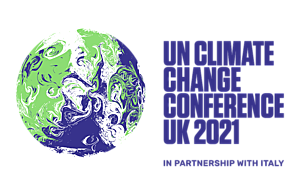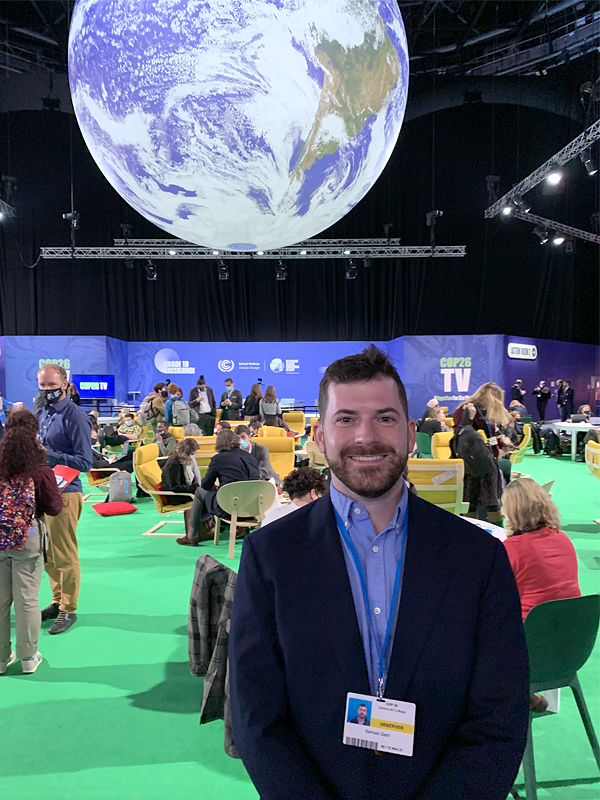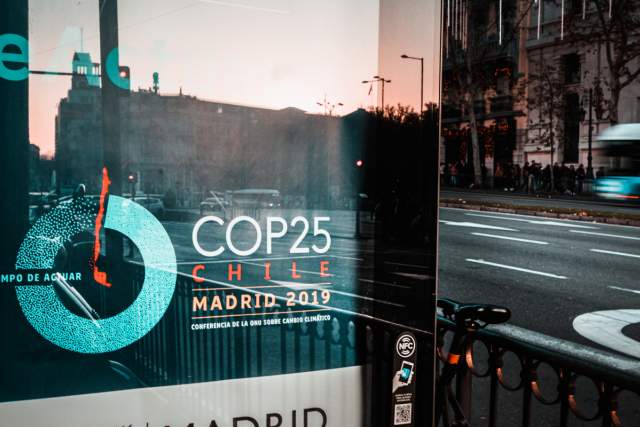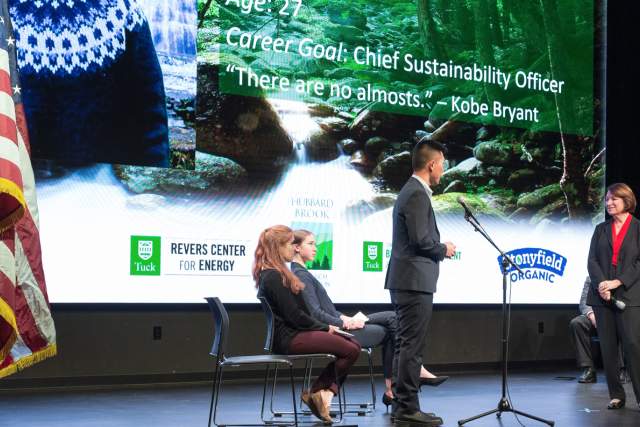Tuck has long participated in the annual U.N. Conference of Parties that addresses climate change.

For students who attend, it’s an experience that stays with them and builds upon the many climate-related courses and programs available at Tuck. This year, COP26 was held in Glasgow, Scotland, and it generated more than the usual amount of attention, due to a year of catastrophic climate-change-related weather disasters, including record heat waves, droughts, flooding and forest fires. Through sponsorship and organization provided by the Center for Business, Government and Society (CBGS) and the Revers Center for Energy, Tuck sent a delegation of six T’22s to COP26, where they had observer status and could sit in on negotiations and panel discussions, and network with professionals at the intersection of climate change, business, and public policy. They were led by Hannah Payson, executive director for the Center for Business, Government and Society, and Tracy Bach, a law professor, experienced climate change law and policy analyst, international negotiations advisor, researcher, and social entrepreneur who has been attending COP for years.
“It’s critical that our students have a front-row seat as they prepare to tackle these challenges as business leaders,” says Payson.
“Exposing Tuck students to the mechanics of decision-making in a real-world context is at the heart of how Centers amplify the MBA curriculum with transformational learning experiences,” adds April Salas, the executive director of the Revers Center for Energy.
Three of the students who attended COP26 from Tuck are Abigail Gary, Kaitlin Horan, and Sam Gant. Here’s a bit about their backgrounds, why they went to Glasgow, and what they got out of it.
Abigail Gary T’22
Abigail Gary came to Tuck with five years of experience working with governments in Chile and Peru on public-private partnerships in the education sector. She came back to the U.S. a little disenchanted about working in government, and curious about the role businesses can play in making change. Before enrolling at Tuck, Gary worked with a foundation that does CSR consulting for large Chilean multinational firms, and that solidified her interest in not only attending business school, but also getting a master’s degree in public policy. She’s currently a dual-degree student at Tuck and the Harvard Kennedy School of Government. “I thought it would be really important to be able to speak the business language, not just the impact policy language,” she says. “I wanted to be able to make the business case for these public policy programs.”
At Tuck, Gary is a fellow at the CBGS, a director of the Tuck ESG (environmental, social and governance) Fund—a student-led fund that invests in equities with an ESG negative and positive screen—and a director of the Tuck Social Venture Fund, which does impact investing in early-stage companies. Those experiences have taught her a lot about the importance of proper measurement in impact-related endeavors. “Right now is an interesting time for ESG metrics,” she says, “because people are starting to measure, standardize, and audit it. That was my main reason for attending COP26.”
The highlight of her trip was attending a panel discussion on standard setting, organized by the British Standards Institute, where panelists talked about creating ESG metrics that can apply across countries and industries. Afterward, she got a chance to speak with the panelists directly and ask questions about materiality—the threshold for disclosing risk in financial statements—and how to make it applicable to multiple industries. “The main message was that we need these metrics so we can create consistency across the board, but we also need flexibility. This will help mitigate some of the greenwashing we are seeing and make us able to compare impact assessments from different companies.”
Gary left Glasgow more motivated and energized than she expected. Previous COPs have made little progress on a binding global agreement to decrease greenhouse gas emissions, and this version didn’t produce many breakthroughs. Still, Gary is optimistic because of the massive collaborative effort every country is making towards reducing climate change. “Seeing everyone working on the problem, that was powerful,” she says.


